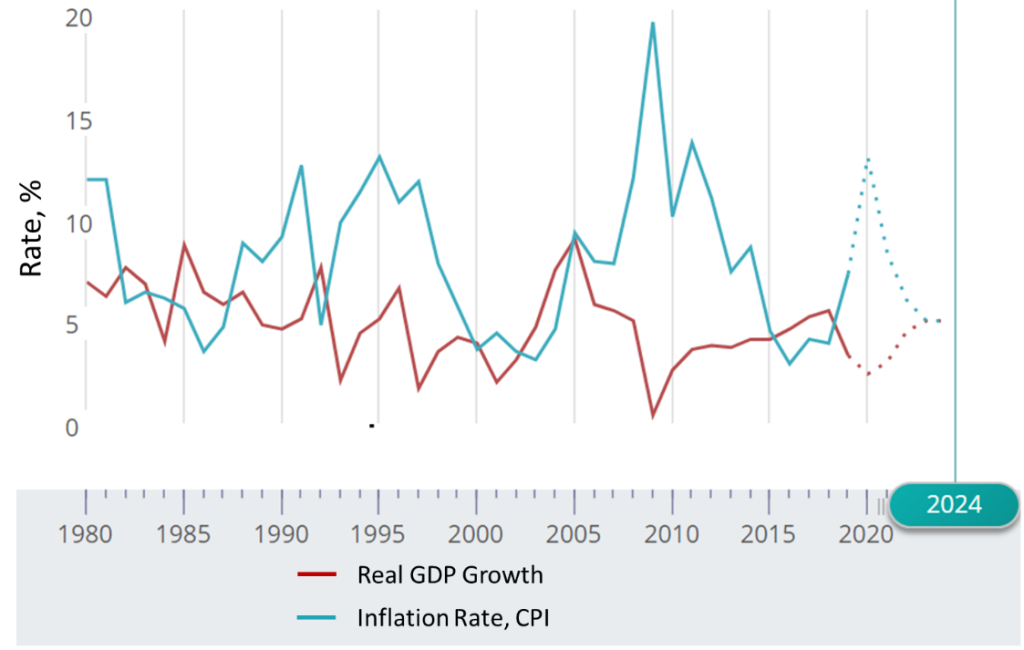Understanding the Economic Factors Behind Pakistan’s Emigration Trend and Its Impact on the Economy

Understanding the Economic Factors Behind Pakistan's Emigration Trend and Its Impact on the Economy
Introduction
Over the past few years, Pakistan has experienced a significant increase in emigration as citizens seek better economic opportunities abroad. The reasons behind this exodus are multifaceted and have far-reaching implications for the country’s economy and overall development.
In this blog, we will delve into the various economic factors that drive citizens to leave Pakistan rapidly. We will also discuss the profound impact this mass emigration has on the nation’s economic state.
Unemployment and Underemployment
One of the primary factors pushing citizens to emigrate from Pakistan is the rampant issue of unemployment and underemployment. The country’s job market has struggled to keep pace with the growing population, leading to a scarcity of suitable employment opportunities. Many skilled and educated individuals find it challenging to secure well-paying jobs that align with their qualifications. As a result, they are drawn to countries with more robust job markets, seeking a chance for better livelihoods and financial stability.
Low Wages and Income Inequality
Income inequality in Pakistan has remained a persistent challenge, with a significant proportion of the population earning low wages. The lack of adequate compensation and poor working conditions contribute to the growing dissatisfaction among citizens. Those who possess valuable skills or expertise are often undervalued and underpaid, prompting them to seek better-paying jobs abroad, where their skills are more appreciated.
Rising prices and the expenses of daily life
High inflation rates have put immense pressure on the cost of living in Pakistan. Rising prices of basic necessities, such as food, housing, and healthcare, have made it increasingly difficult for the average citizen to make ends meet. The inability to cope with the rising cost of living becomes a driving force for emigration, as individuals seek countries with more stable economies and a higher standard of living.
Economic Instability and Uncertainty
Pakistan has faced economic challenges, including fluctuations in the value of its currency and a trade deficit. This economic instability creates an environment of uncertainty, where individuals lack confidence in the country’s economic prospects. As a result, many opt to leave Pakistan in search of more stable economies that offer greater financial security and opportunities for growth.
Limited Access to Quality Educationand Healthcare
Education and healthcare are crucial components of human development and well-being. However, Pakistan’s education and healthcare systems have faced significant challenges in providing quality services to all citizens. The lack of access to affordable and quality education and healthcare services pushes many families to seek better prospects abroad, where they can ensure a brighter future for their children and access better medical facilities.
Political Corruption and Lack of Governance
Political corruption and poor governance in Pakistan have hindered economic growth and development. The mismanagement of public funds and resources has a direct impact on the provision of essential services and the overall economic climate. The disillusionment with the political system and governance often drives citizens to leave the country, hoping for a more transparent and accountable system elsewhere.
Impact on the Economy
The mass emigration of citizens from Pakistan has significant implications for the country’s economy.
Brain Drain and Skills Shortage
Emigration leads to a “brain drain” effect, as skilled professionals and educated individuals leave the country in search of better opportunities. This talent outflow creates a skills shortage within Pakistan, negatively impacting sectors such as healthcare, engineering, technology, and education. The loss of skilled workers and intellectuals hampers economic productivity and innovation, affecting the nation’s overall growth potential.
Money transfers and currency exchange from abroad
On the flip side, emigration also brings in remittances from overseas Pakistanis. Remittances play a vital role in the country’s economy, acting as a significant source of foreign exchange and helping to stabilize the balance of payments. Remittances provide crucial support to families left behind, contributing to poverty alleviation and supporting household consumption.
Reduced Tax Base
As individuals emigrate, the tax base in Pakistan shrinks. The departure of skilled workers and high-income earners results in a reduction in tax revenue for the government. This can lead to budgetary constraints, making it challenging to invest in vital infrastructure, education, healthcare, and other essential services.
Impact on Local Businesses
Emigration also affects local businesses, as it reduces the consumer base and demand for goods and services. Small businesses may struggle to survive due to declining sales, leading to potential job losses and economic slowdown in certain regions.
Social and Demographic Impact
Emigration can have social and demographic repercussions. Families may be separated due to migration, causing emotional strain and affecting social dynamics. Additionally, the departure of young, able-bodied individuals can impact the labor force’s composition, potentially leading to a disproportionately aging population.
Conclusion
The rapid emigration of citizens from Pakistan is primarily driven by various economic factors, including unemployment, low wages, inflation, and economic instability. The impact of this phenomenon on the country’s economy is multi-faceted, with the brain drain effect leading to skills shortages and reduced tax revenue. However, remittances from overseas Pakistanis also provide crucial support to the economy. Addressing the root causes of emigration, such as improving employment opportunities, investing in education and healthcare, and tackling corruption, is essential to retain talent and foster economic growth in Pakistan
For More Related Articles Browse Our Website Blogster.pk
For social Connection You can also Visit and follow our Social media Platforms
Facebook , Instagram, Linkedin, Pinterest, Quora, Twitter, Youtube.







